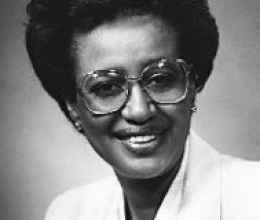The Michigan State Housing Development Authority must adopt written guidelines for landlords and local public housing agencies to address the evictions of subsidized housing tenants who use medical marijuana in accordance with state law, the American Civil Liberties Union of Michigan said in a letter today.
Currently evictions are not required by federal law or state policies, however, countless individuals are at risk of losing their home because of misinformation about what the law requires and allows.
“No one deserves to be thrown out of their home for following Michigan law,” said Zainab Akbar, ACLU of Michigan legal fellow. “We recognize that landlord decisions with regard to medical marijuana patients are not motivated by malice but rather a misconception about the law.
"We are confident that evictions could be prevented if MSHDA makes it clear that landlords have the choice to allow medical marijuana patients to stay in their homes – an outcome that is in everyone’s best interest.”
In November 2008, voters in Michigan overwhelmingly approved the Michigan Medical Marihuana Act, which legalizes the use of marijuana for medical purposes.
Since its passage, the ACLU of Michigan has received several complaints from individuals who were notified by their landlord, MSHDA or local public housing agency that their federal housing assistance would be terminated because they use medical marijuana in accordance with state law.
“The numerous complaints we’ve received are from vulnerable individuals who have done nothing wrong and whose illnesses are only compounded by the stress of a possible eviction,” said Akbar. “It’s vital that MSHDA sends a clear message to landlords that they have choices so that no innocent person is evicted.”
Although possession and use of marijuana remains technically illegal under federal law, it is the official policy of the U.S. government not to prosecute medical marijuana patients who are in compliance with state drug laws.
Despite receiving funding from the federal government, public housing agencies and landlords of federally assisted housing are not required to evict tenants who violate federal drug laws.
As the ACLU explained in its letter, the landlords and public housing agencies have full discretion under federal law to allow medical marijuana patients to stay in their homes.
In recent years, the ACLU of Michigan has received numerous complaints including from the following registered patients:
- Lori Montroy of Elk Rapids is living with advanced, terminal brain cancer similar to the type that killed Senator Ted Kennedy. Montroy's doctor recommended medical marijuana to treat her excruciating pain and nausea. However, when her public housing landlord found out, he issued an eviction notice shortly before Christmas 2009. The ACLU wrote a letter on behalf of Montroy clarifying the law and the management company reconsidered its decision allowing her to stay in her home.
- Jeanette Keillor of Davison became a state-approved medical marijuana patient, treating the excruciating pain caused by Fibromyalgia with a marijuana balm. Although she had permission from her landlord to grow the plants, the state housing agency terminated her Section 8 housing subsidy when they found out. The ACLU of Michigan successfully challenged the termination in an administrative hearing. The judge ruled that federal law does not require the termination of tenants who comply with state law.
- Mathew Bennett of Port Huron suffers from degenerative arthritis, a degenerated disc and a chronic pinched nerve. In early 2010, he became a registered medical marijuana patient. Although Bennett’s landlord was aware of and didn’t object to his use of medical marijuana, his local housing commission informed him that his subsidy would be terminated. Bennett successfully appealed the decision and has been allowed to stay in his home.
In its 9-page letter, the ACLU of Michigan explained that HUD and MSHDA regulations require that landlords exercise their discretion and address each case individually.
The ACLU of Michigan asked MSHDA to uniformly apply these requirements and adopt standard guidelines when considering eviction that take into account the seriousness of the activity and the physical condition of the patient and their ability to find alternative shelter.
Read the ACLU’s letter here


